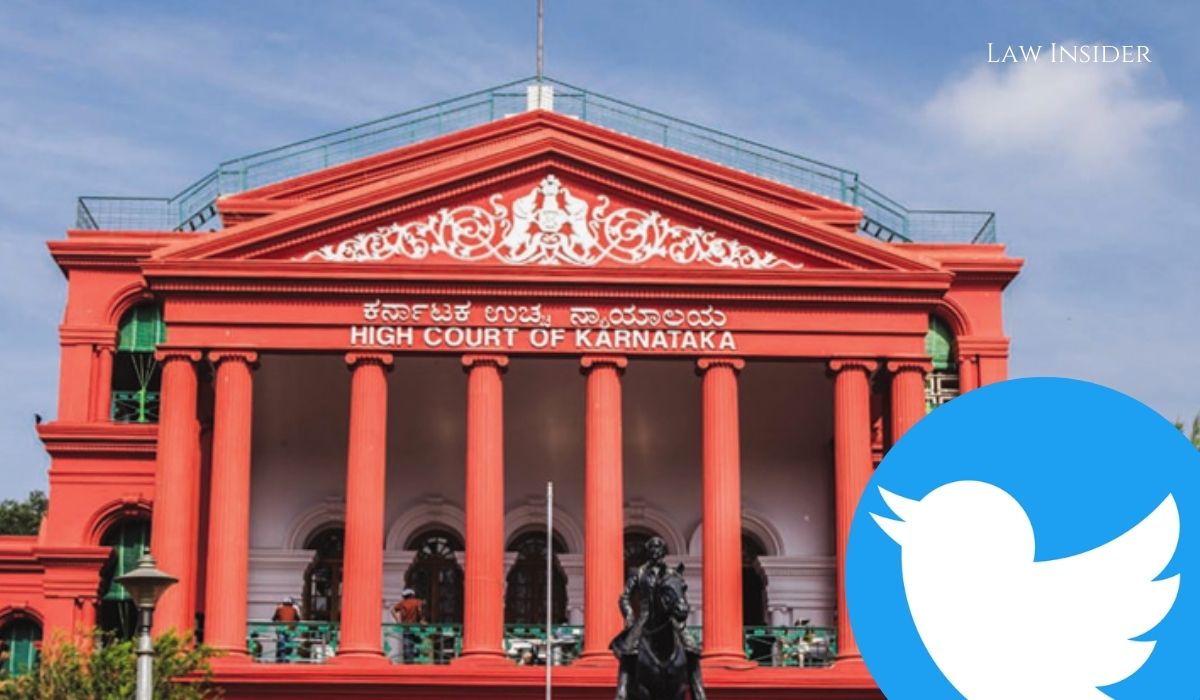Sakina Tashrifwala
Published on: October 28, 2022 at 19:44 IST
Twitter India told the Karnataka High Court today that orders issued by the Central government to block certain user accounts have a direct impact on those users’ Right to Free Speech and Expression, and thus the orders must be communicated to them.
When the Court pointed out that the governing statute (the Information Technology Act) uses the phrase “reasons to be recorded” rather than “reasons to be recorded and communicated,” Senior Advocate Ashok Haranhalli representing the platform submitted,
“Even if the word “communicated” is not used, the reasons recorded should be communicated unless there is a public interest.”
He also claimed that if reasons are not present in the womb of the order, it could be manufactured. As a result, authorities bear a heavy burden of demonstrating justification for withholding reasons.
“Orders must be reasoned and communicated to those affected so that they can be questioned… If this is not communicated, it violates my right to appeal.”
The senior counsel reiterated that an omnibus general blocking order could not be issued unless the content violated the grounds specified in Section 69 (A) of the IT Act, and that any violation of the statutory provisions by the State directly violates the affected party’s right to equality before the law as guaranteed by Article 14 of the Constitution.
Haranhalli wrapped up his arguments today.
On November 16, the bench will hear ASG M B Nargund for the government.
Exchange in the Courtroom
At the outset, Haranhalli argued that communicating reasons is preferable so that those whose rights are violated can file an appeal.
In this case, Justice Krishna S. Dixit pointed out that Parliament uses the phrase “reasons to be recorded” in some statutes, and there is a list of laws that say “reasons to be recorded and communicated.”
“Therefore, subject to correction, when Parliament says ‘reasons to be recorded,’ it means reasons should NOT be communicated to the party,” Justice Dixit observed.
However, Haranhalli responded that simply recording reasons in the order will be ineffective.
“If the Union of India’s position is that this is the safeguard provided by legislation, then their position is valid. However, this position of not informing reasons cannot be considered a safeguard. ..Speaking order requires reasons for the action to be recorded…it is my contention that speaking order must record reasons in every case.”
“The very object that reasons should be recorded independently means it needs to be communicated so that it can be done if it is required to be challenged before the court,” he added.
Haranhalli then referred to Section 69A of the IT Act, which grants the authority to issue directions prohibiting public access to any information via any computer resource.
The government may exercise this power for the following reasons:
(i) In the interest of India’s sovereignty and integrity,
(ii) Defence of India,
(iii) Security of the state,
(iv) Friendly relations with foreign states,
(v) Public order, or
(vi) To prevent incitement of a cognizable offence relating to the foregoing.
He contended that the government’s defence is not that it is not disclosed for compelling public interest reasons.
He stated, “Account-level blocking equates to information blocking in the future… Should we block a foreign handle simply because it is against our interests? Authorities must reach an agreement,”
He also claimed that some tweets related to the Farmers’ Protest were defamatory. However, the accounts cannot be blocked in their entirety.
At this point, the Bench stated orally that the maturity level of some sections of society is inadequate, and such people believe whatever comes their way.
It observed that, in terms of Section 69A compliance, “These are items for which no explanation is provided. As a result, the building blocks of Section 69A are significant and serious. Certain details cannot be revealed at all.”

